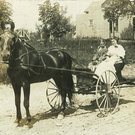Budget games and secret stunts are poor governance
To the Editor:
Formulating the 2019 Berne budget in the fall of 2018 was a disturbing experience.
The state comptroller mandates a specific timeline and process for adopting a budget. First, the supervisor must shape a tentative budget, which he is required to submit to the town clerk by Sept. 6. Once received by the clerk, it is then presented to the town board for review and revision. Sept. 6 is typically the first time the town board sees what the supervisor has created.
Last year, Berne Town Board members were asked to attend a couple of “budget workshops” before the tentative budget was filed with the town clerk. While this was an unusual request, it was probably not illegal. The town board members decided to attend the workshops in the interest of cooperation.
We attended these premature meetings in good faith, ready to objectively contribute to the process. At the beginning of the second “workshop,” Sean Lyons, the town supervisor, announced that Dennis Palow, the deputy supervisor, would read a prepared statement. Turns out, it was a premeditated attack on the previous administration, accusing it of badly mismanaging the budgets of previous years.
Not only was this a surprise, it was also inaccurate. The comptroller’s office had previously complimented that administration for its fiscal management. Mr. Palow’s unannounced reading was an aggressive, inaccurate, mean-spirited political attack with no supporting evidence. When asked what was mismanaged, and what should be done differently, he refused to give details, saying it was just his opinion. When asked to at least explain the basis for his opinion, he refused to say.
It is disturbing enough that this nasty political tirade was red meat clearly designed to please the (mostly GOP) supporters in the audience. But what’s worse is that its primary function, in my opinion, was to publicly diminish the credibility of Dawn [Jordan] and Karen [Schimmer], both members of the previous administration. This was, in my opinion, a very deliberate attempt to publicly intimidate them during the budget process, with the goal of reducing their willingness to participate or offer any suggestions. It did not work.
The budget workshops were not recorded and that is always a mistake with these guys. Mr. Palow is prone to name-calling, threats, and intimidation tactics when there is no recording. He often calls me a liar in executive sessions. And he did indeed suggest I should find somewhere else to live in our first executive session. That is, in my opinion, threatening language. I’ve lived in Berne all my life, unlike Mr. Palow, and had no intention of leaving my home at his suggestion.
Not surprisingly, both Mr. Lyons and Mr. Palow refused to provide a copy of the nasty, prewritten workshop statement. Clearly they didn’t want the very inappropriate, intimidating attack included in the town record. I repeatedly requested it be added to the record, but was denied each time.
We later noticed that the supervisor took the sheriff’s emergency medical services unit from his tentative budget. He did not tell the town board he had done this, nor did he attempt to discuss it with them. The town’s senior account clerk had carefully explained that historic precedent was an important consideration in budgeting, and that you never lower a budget line from the previous year without serious discussion about why. But he failed to tell the town board of its elimination, much less discuss it with its members.
This Sheriff’s EMS Unit was appropriately included in the previous administration’s budget. The unit includes a fully-equipped ambulance as well as an emergency medical technician, and provides an important service shared by the four Hilltowns. Because the full cost of this service is significant, a carefully-devised plan was created that phased in the cost over four consecutive years, gradually increasing each town’s financial responsibility until the fourth year, when the full cost of the service would be met. To achieve this, the amount charged would increase incrementally each of those four years. This ensures the town budgets were not overwhelmed in any one year.
The supervisor repeatedly denied an ambulance was included in the unit despite several attempts to explain the situation to him. A letter from the Sheriff’s EMS department, requested by one town board member, convinced him an ambulance was indeed part of the unit.
When he finally acknowledged that the expense was legitimate, he still fought including it in this year’s budget. He wanted to defer the payment for the 2019 service until 2020. This seemed unwise to me. Piling the 2019 and 2020 costs together into the 2020 budget would triple the cose and could cause a tax-cap problem if other unanticipated expenses arose. It seemed short-sighted and irresponsible. So he was overruled.
The supervisor’s statement last week is misleading and does not take into account the increasing yearly cost of the service. He said: “The 2018 bill from the county would be paid in 2019 and the 2019 bill would be paid in 2020.”
The statement seems an overly simplified description of the mechanisms in play. We must carefully phase in this incrementally-increasing cost, one year at a time. In my opinion, we need to confront the projected costs for services in the budget year they are rendered. There is now talk that this cost could increase over and above what was projected. This is how expenses can snowball, and is an indication of how readily the town’s budget, the tax cap, and your taxes, can be negatively impacted.
It is clear that the supervisor did not want to budget for the Sheriff’s EMS unit. It has provided much-needed emergency service when the Helderberg Ambulance is busy or for unavoidable reasons, is unavailable. More than 60 families have benefitted from its service in past years.
I don’t know why these budget games were played last year, but based on all the secretive stunts pulled in the last year-and-a-half, I’m not going to assume they were innocent mistakes made due to inexperience. These guys were certainly confident enough to launch a long-winded, all-out, scorched-earth, personal political attack during a budget workshop.
Joel Willsey
Berne Town Board
Editor’s note: Dennis Palow responded through The Enterprise that he had never made a prepared statement at last year’s budget workshops, but instead spoke from notes he had taken at previous meetings. Palow said that Joel Willsey asked that his statement be put on the record, but Palow said that he hadn’t given a prepared statement and that it was not required to have it included in the record for a budget workshop.
Palow declined to comment on discussions that took place in executive session, but said he has never threatened anyone during an executive session. He said that he has told Willsey that, if he didn’t like how things were going, to resign, but doesn’t consider that a threat. He added that Willsey had, in 2018, shaken his finger and came at him at the town hall and Palow considers that to be a threat. Willsey said that Palow was the aggressor in the incident and that he himself only stood in place.
Sean Lyons responded through The Enterprise that he has addressed the issues before. He said that he had already signed a contract with Albany County for both Advanced and Basic Life Support services in February 2018 and had no intention of doing away with the ambulance service. Despite the payment increases, he said that the billing cycle will not change and that the next payments are not due until 2020.

